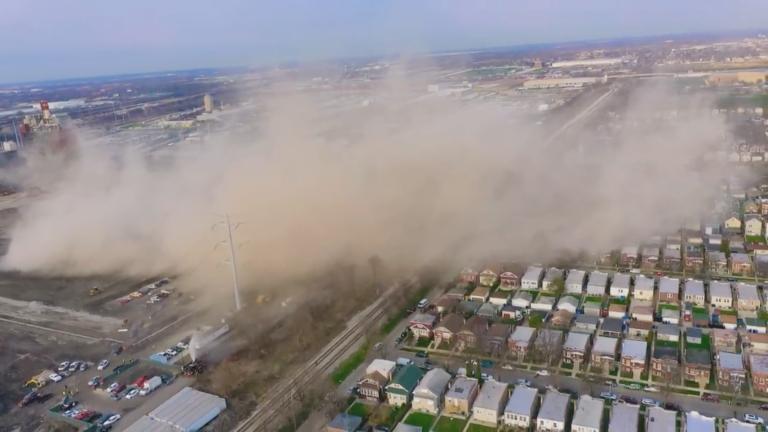It’s winter in Chicago, but where’s the cold weather and snow? That may have crossed your mind if you’re a lifelong Chicagoan and were bracing for below-freezing temperatures by this time of year.
December’s temperatures are averaging about nine degrees higher than normal, with an average of 39.6°F in Chicago so far this month. That’s compared to an average of 30.5°F from 1991 to 2020.
“It has been significantly warmer and significantly less snowy in Chicago, and there are two culprits here beyond the normal variability,” said Scott Collis, an atmospheric scientist and department head at Argonne National Laboratory.
One of those “culprits” is the weather phenomenon known as El Niño.
“Warm waters in the Pacific Ocean tend to make Chicago’s weather a little drier and a little warmer than normal,” Collis said. “But one of the things that’s really loaded the dice for this year is climate change, which not only increases temperatures in Chicago but increases the likelihood for extremes like what we’ve seen this winter.”
According to Collis, ocean currents vary a lot less than day-to-day weather so when winds are not very strong over the Pacific Ocean, warmer waters tend to stay at the surface along the equator off the coast of South America.
“That has a really strong influence on the weather on the western coastlines in the United States and in places like Asia and Australia, and a smaller but significant impact in the Midwest in winter especially,” Collis said.
Despite many hoping for a white Christmas, this was the second warmest Christmas Day on record, behind 1982 when it was 64 degrees.
This month has also been among the top five least snowiest Decembers on record.
“It’s been a little wetter than usual but a lot less snowy,” Collis said. “All of our precipitation has fallen as rainfall. We’ve actually had slightly above average precipitation when you take all the snow and melt it, and then all the rain and you add that together.”
Contact Acacia Hernandez: @acacia_rosita | [email protected]








